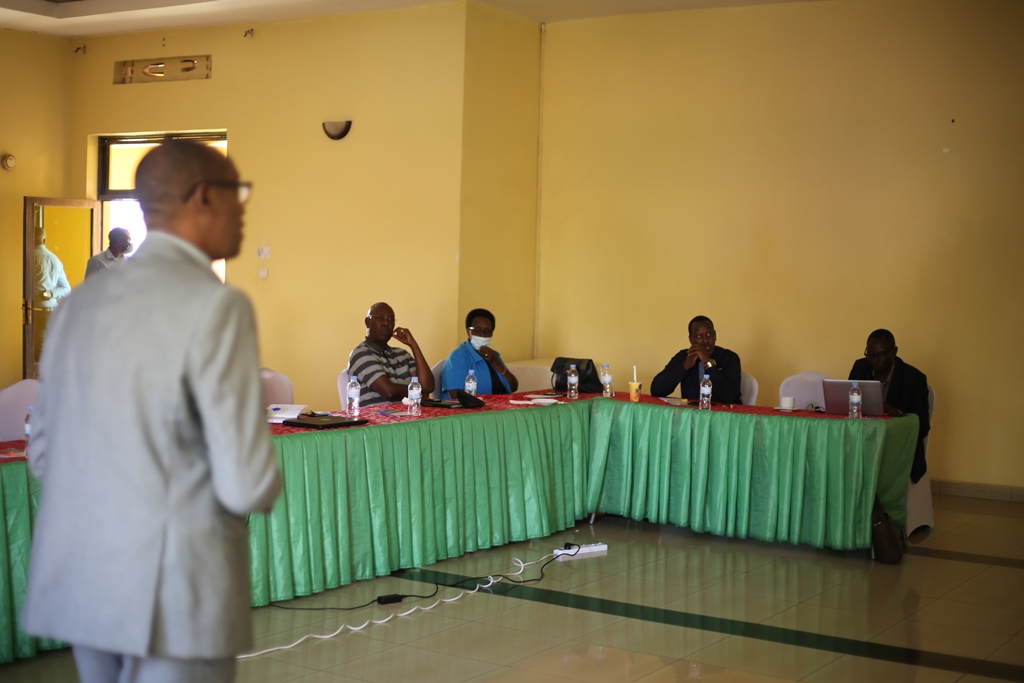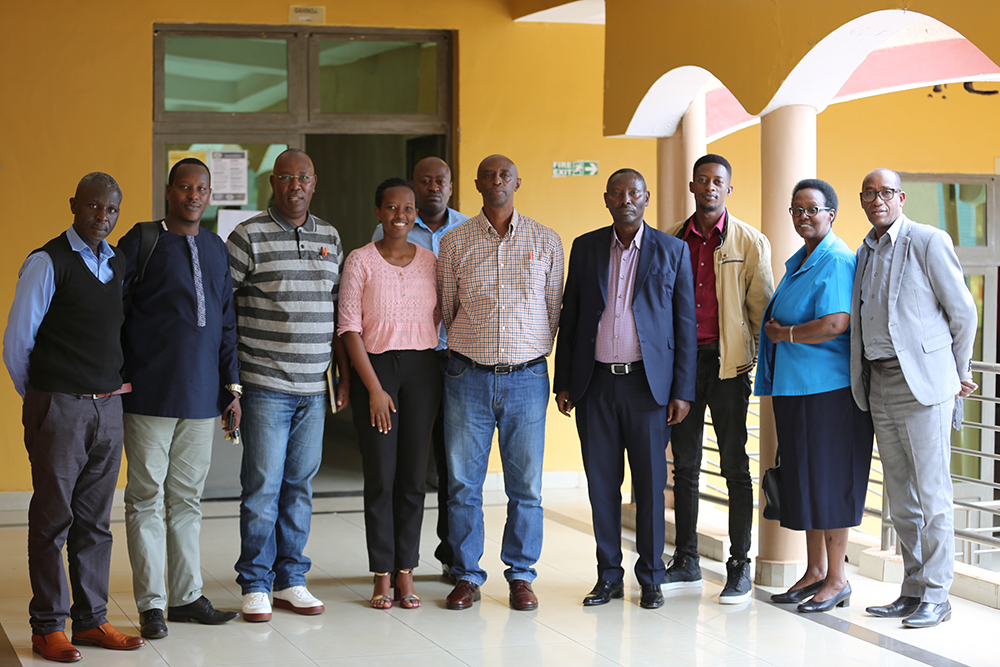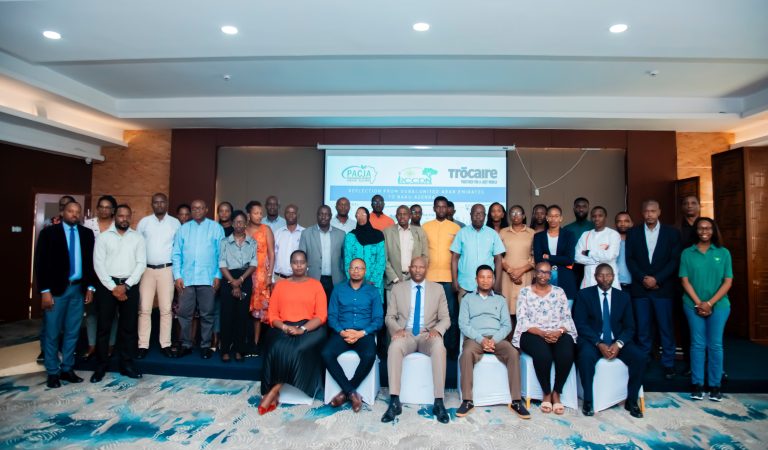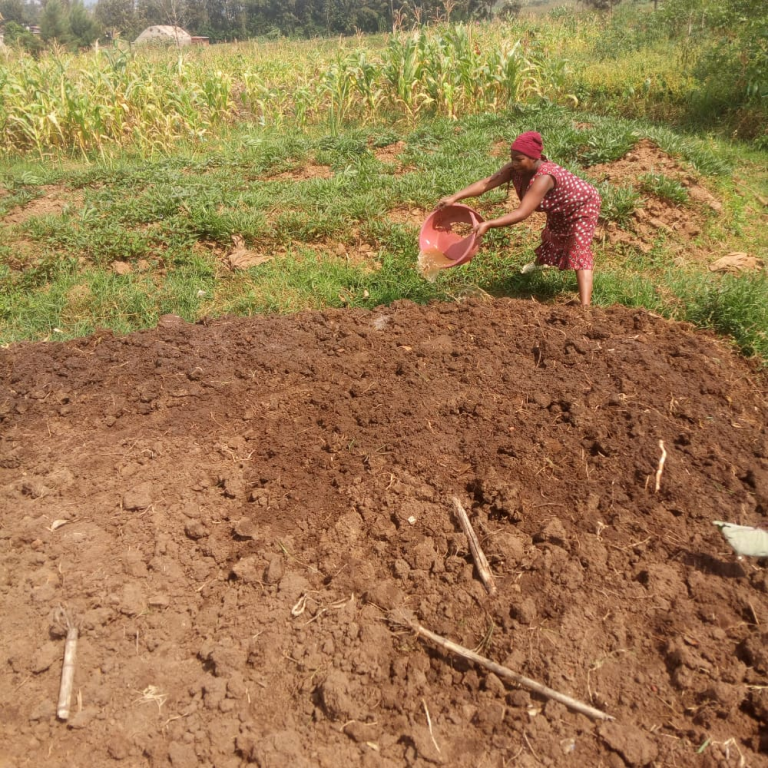Rwanda Climate Change and Development Network (RCCDN) met with partners to discuss and validate findings on the critical assessment of the implementation of Rwanda’s Nationally Determined Contributions (NDCs).
The validation workshop on Tuesday, 7th November 2021 held at Hilltop Hotel in Kigali presented a report with assessment on the implementation of the NDCs from the time they were presented as INDCs to date.
Opening the workshop, Faustin Vuningoma, the Coordinator of RCCDN said that a research was undertaken to establish how Rwanda was doing in the implementation of the nationally determined contributions.
He said that, as a party to the United Nations Framework Convention on Climate Change (UNFCCC), Rwanda was among the first countries globally to submit its updated nationally determined contributions.
Eugene Rwibasira, the Chairman of RCCDN welcomed the research findings and called on members from the civil society to identify gaps in various findings and do their part.
Rwibasira urged members of RCCDN to be more active in their work but most importantly work together to heighten and strengthen their contributions towards the implementation of the NDCs.
Presenting the research findings, Livingstone Byandaga, an independent consultant who conducted the research reminded participants of the objectives of the study was to analyse the first set of Rwandan INDCs and their implementation compared to the revised and updated NDCs of 2020 in respect to the Paris agreement resolutions.

He explained that, the identification of the relevant stakeholder’s roles and contributions to the development, implementation and monitoring, and evaluation of the NDCs was also targeted.
The study looked at identifying key gaps and constraints that may hinder the effective implementation of NDCs, and developing recommendations to improve their implementation.
The research purposively targeted government institutions implementing the NDCs including Ministry of Environment, Minagri/RAB, Minema, Minicofin, Mininfra, Minicom, REMA, Fonerwa, Rwanda Forestry Authority, Rwanda water resources Board, WASAC, RURA, Rwanda Housing Authority and Meteo Rwanda.
Respondents were also obtained from local government institutions from 10 districts that were randomly selected from across the country as well as civil society organisations (CSOs) including Rwanda Environmental NGO’s Forum (RENGOF), Urugaga Imbaraga, IUCN and Vi Agroforestry, ARECO, RECOR, REDO and RDO.
Study findings shows that 56% of respondents said they were not consulted in the setting up of the measurement, reporting, and verification (MRV) indicators.
Assessing the implementation, the study found that the majority of participants (31%) indicated that the NDCs implementation progress was below 5%, while 25% said it is between 5-10%, but 17% highlighted that NDCs are at a progress of 10-20% and only 5% recognise the progress at above 20%.
Surprisingly, a sizeable number of 22% of the respondents didn’t know the progress of NDCs in their institutions.
The research also found key gaps and constraints hindering effective implementation of NDCs, top on the list is understanding of its measures and relevancy to the national economy that was identified by 28% of the respondents. Around 22% identified funding as a key constraint and another batch of respondents (17%) identified harmonization of sector policies with NDCs as another constraint.
Other constraints and gaps identified include lack of NDC measures in strategic and action plans, capacity building and dissemination, scattered data and lack of data collection and publications as well as lack of ownership of the national policies at ministerial, local governments and CSOs level.
The lead researcher, Byandaga said that from the assessment there were recommendations drawn that are directed towards government entities as well as civil society institutions.
It was recommended for government to take a lead, for instance on fund mobilization, especially for non-condition emission reductions, enhancing capacity development for MRV and establishing focal points in government ministries, departments, local authorities, CSOs to support the implementation of NDCs.
CSOs were also advised to work closely with government on increased awareness and active participation of the local government authorities, communities, Civil Society and Private sector in the implementation of NDCs.
Following the validation of the research findings on the implementation of NDCs, a national dialogue is planned in the near future to further engage different stakeholders in discussions to address the gaps identified and provide a way forward.




